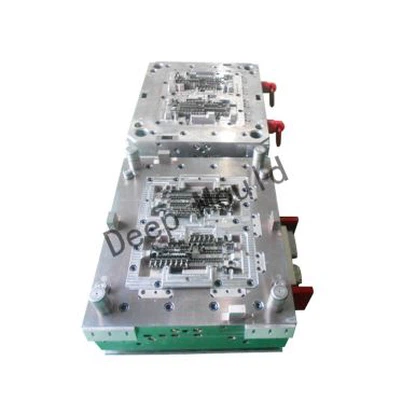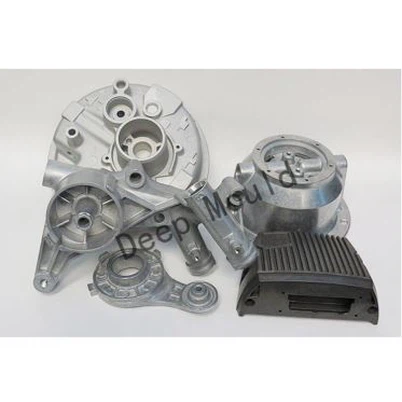What Is The Best Material For Die Casting Molds
Leave a message
The alloys used in die castings are mainly non-ferrous alloys. As for ferrous metals (steel, iron, etc.) due to mold materials and other issues, they are rarely used. Aluminum alloys are widely used in non-ferrous alloy die castings, followed by zinc alloys. The following briefly introduces the situation of die-casting non-ferrous metals.
(1) Classification of die-casting non-ferrous alloys, hindered shrinkage, mixed shrinkage, free shrinkage, lead alloy-----0.2-0.3% 0.3-0.4% 0.4-0.5%, low melting point alloy, tin alloy, zinc alloy--------0.3- 0.4% 0.4-0.6% 0.6-0.8% Aluminum-silicon series--0.3-0.5% 0.5-0.7% 0.7-0.9% Die-casting non-ferrous alloy aluminum alloy aluminum copper series aluminum-magnesium series---0.5-0.7% 0.7-0.9% 0.9 -1.1% refractory alloy aluminum-zinc magnesium alloy ---------- 0.5-0.7% 0.7-0.9% 0.9-1.1% copper alloy
(2) Recommended casting temperature for various die-casting alloys Alloy type Average casting wall thickness ≤ 3mm Average casting wall thickness> 3mm Simple structure and complex structure Simple structure and complex structure
Aluminum alloy Aluminum silicon series 610-650℃ 640-680℃ 600-620℃ 610-650℃
Aluminum copper series 630-660℃ 660-700℃ 600-640℃ 630-660℃
Aluminum Magnesium 640-680℃ 660-700℃ 640-670℃ 650-690℃
Aluminum zinc series 590-620℃ 620-660℃ 580-620℃ 600-650℃
Zinc alloy 420-440℃ 430-450℃ 400-420℃ 420-440℃
Magnesium alloy 640-680℃ 660-700℃ 640-670℃ 650-690℃
Copper alloy Ordinary brass 910-930℃ 940-980℃ 900-930℃ 900-950℃
Silicon brass 900-920℃ 930-970℃ 910-940℃ 910-940℃
*Note: ①The casting temperature is generally measured by the temperature of the molten metal in the holding furnace.
②The casting temperature of zinc alloy should not exceed 450℃ to avoid coarse grains.






